The Myers-Briggs® Personality Types of the Peanuts Characters
I grew up reading the Peanuts comic strip; something about the mishaps of Charlie Brown or the imaginative chaos of Snoopy always entertained me (although Woodstock was my real favorite). Now that I’m 39 years old, I enjoy watching my kids read the Peanuts comic strips and watch the Charlie Brown movies. They still make me laugh, even decades later. In fact, as I’m writing this, my kids are watching HBO Max’s new Snoopy series as they get over a case of the stomach flu. What better way to get through a stomach bug, right?
Anyway, over the years I’ve noticed distinct Myers-Briggs® personality types for each of the Peanuts characters. Today I’m bringing my thoughts about them to this post for fellow Peanuts fans or those who are interested in exploring the comics or the TV shows.

Not sure what your personality type is? Take our new personality questionnaire here. Or you can take the official MBTI® here.
The Myers-Briggs® Personality Types of the Peanuts Characters
Charlie Brown – The INFP (“The Dreamer”)
“Sometimes I lie awake at night, and I ask, ‘Where have I gone wrong.’ Then a voice says to me, ‘This is going to take more than one night.’” – Charlie Brown
Ah, good ol’ Chuck. I honestly had a hard time narrowing down his type. There are many arguments for INTP, but most of them stem from the idea that because he’s insecure and cares what others think about him, so he must have inferior Extraverted Feeling. But, particularly in childhood, all people care what others think. Group acceptance and belonging are important for survival so we’re biologically wired to want to fit in. It often isn’t till we get older (and sometimes, not even then) that we start to be more okay with just being in our own skin.
I eventually landed on INFP for Charlie Brown. Why? Because he is constantly assessing his inner feeling state. INFPs are known for their deep emotional landscapes and, boy, does Charlie Brown wade through some emotional depths. It’s like he has an internal barometer constantly measuring the highs and lows of his feelings, which we commonly see when he’s mulling over the profound questions of life, usually resulting in that trademark sigh.
If Charlie Brown were an INTP we’d see him musing about how things work, the logic of various ideas and theories, and the more detached intricacies of understanding the world. Yes, INTPs do also think about their feelings and where they stand with others; sometimes a lot. But Charlie Brown’s constant self-analysis and self-referencing (particularly in the comics and not just the TV shows) is more akin to INFP than INTP.
INFPs, like our friend here, are notorious for overthinking and not acting on their wants, and Charlie illustrates this perfectly. Be it the unending quest to talk to his crush or managing to win just one baseball game, he often finds himself paralyzed by overanalysis or the fear of stepping out of his comfort zone.
Despite the world being sometimes less than kind to him (cue the rainclouds that seem to hover exclusively over his head), Charlie Brown is a steadfast ‘non-combatant,’ if you will. He’d rather suffer in silence than retaliate, even against a Lucy-approved football prank. Just think about it – have you ever really seen Charlie Brown lose his cool? Even when Snoopy’s antics drive him up the wall, he responds with an almost saint-like patience.
Honestly, our dear Charlie Brown is an INFP hero in a world that often doesn’t value sensitivity and reflection. He may be a bit of a tragic figure with his existential musings and unfulfilled longings, but he’s our tragic figure – and an absolute treasure trove of insight for fellow dreamers and idealists.
You might also like: The Top 25 Favorite INFP Movies
Linus Van Pelt – The INFJ (“The Mystic”)

“There’s a difference between philosophy and a bumper sticker.” – Linus Van Pelt
If there ever were a little boy who could make you believe in the sincerity of a pumpkin patch, it’s Linus. Sweet Linus—with his philosophical quotes and blue security blanket in tow—he’s the perfect embodiment of an INFJ. Known as “The Mystic,” Linus is the introspective sage of his crew, often found musing on life’s bigger questions while the rest of the gang is tangled up in the day-to-day.
Remember the Christmas special where everyone’s lost in the commercial hoopla? Linus steps up with his trusty blanket, and in a spotlight soliloquy, he explains the true significance of Christmas, leaving the rest of the Peanuts crew—and all of us watching—in quiet awe. That’s what INFJs are here for. They are the types to pause and offer a thoughtful perspective that cuts to the core, gently guiding us all back to what truly matters.
And in typical INFJ fashion, Linus’ imagination know no bounds! Whether it’s his heartfelt belief in the Great Pumpkin or his offerings of advice from the bridge during times of contemplation, Linus straddles the line between the innocent whimsy of childhood and a wisdom way beyond his years. It’s that complex layering of deep insight couched in childlike wonder that makes INFJs so enigmatic—and Linus so captivating. He may not have found the Great Pumpkin (yet!), but his unwavering faith and kind-hearted nature are reward enough for the kindred souls surrounding him.
You might also enjoy: 7 Things That INFJs Experience As Children
Lucy Van Pelt – The ESTJ (“The Captain”)
“Lucy van Pelt: You think being average is enough, don’t you? Well it isn’t! What shape would the world be in today if everyone settled for being average?
Linus van Pelt: What shape is the world in today?“
Lucy Van Pelt, with her no-nonsense approach to life, unmistakably represents the ESTJ – “The Captain”. She’s the one in charge, whether it’s handing out unsolicited advice from her psychiatrist booth for five cents or orchestrating the neighborhood’s next big production. Lucy’s assertiveness shines through when she points out flaws and areas for improvement, often in a manner that could use a little sugar-coating. But, let’s face it, if there’s a game to be organized or a plan to be executed, Lucy’s your gal.
She’s at her ESTJ best when she bluntly tells Charlie Brown what he’s doing wrong, totally unafraid to be direct. Remember her infamous remark, “You’ve got to be a real blockhead to fly a kite in a winter snowstorm,”? And who else but Lucy could unapologetically yank away a football with such commanding finesse, ensuring Charlie never does kick it? That’s all part of her take-charge ethos.
But beneath that seemingly steely exterior, there’s a hint of cinnamon amid the spice. The time Lucy sweetly tucks her brother Linus into bed after his chilly all-night vigil in the pumpkin patch proves she’s more than just a bossy dictator; she’s got a caring side of her. It’s that complexity – a mixture of tough love and tenderness – that gives her the undeniable ESTJ edge. She might tell it like it is, but she’ll also be there, reluctantly perhaps, when it’s time to rally to a friend’s side.
In every Peanuts escapade, you’ll find Lucy at the helm, steering the ship with confidence and maybe raising an eyebrow or two along the way. But even when she’s shaking the trees with her forthrightness, she’s also planting seeds of care and guidance occasionally (although we wish it were a bit more often!).
Discover more about ESTJs: A Look at the ESTJ Leader
Snoopy – ENTP or ENFP
“Yesterday I was a dog. Today I’m a dog. Tomorrow I’ll probably still be a dog. Sigh! There’s so little hope for advancement.” – Snoopy
Ah, Snoopy, our lovable beagle, skirts the line between ENTP and ENFP so gracefully that pinning him down to one personality type is nearly impossible. Nonetheless, one thing stands clearer than the Red Baron’s pursuits: Snoopy is an undeniable ENxP.
Let’s think about it—he’s the embodiment of imagination with his doghouse turning into a Sopwith Camel as he becomes the World War I Flying Ace, scarf fluttering heroically in the wind. Or there are his stints as the cool college student “Joe Cool” lounging against the wall with sunglasses and an impressive bravado. Not to mention the times he’s an author, typing away masterpieces on his typewriter, with the occasional “It was a dark and stormy night…”
Snoopy lives in the realm of possibility, always one paw-step away from his next grand adventure or quirky escapade. A traditional beagle’s pursuits of rabbits just won’t satisfy his creative spirit. He’d much rather dance with the finesse of Fred Astaire or don the legal cap and argue in court with the seriousness of a seasoned attorney.
Such is the life of an ENxP, where routine is the trap, and the unexpected horizon is the treasure map. With each new day, Snoopy sails the skies, trots through the halls of thought, and, quite often, finds himself moonlighting as the Easter Beagle, dispensing eggs and joy with unbridled generosity. While we might not be able to decide if he’s more of an ENTP or an ENFP, there’s one thing we can agree on, it’s that his enthusiastic essence captures the true spirit of the ENxP personality—a free soul eternally chasing the wonders of possibility and ‘what-ifs.
Schroeder – The ISFP (“The Virtuoso”)
“Hold on, there! What do you think you’re doing?! Who do you think you are?! Where were you yesterday when everyone else was giving out valentines? Is kindness and thoughtfulness something you can make retroactive? Don’t you think he has any feelings?! You and your friends are the most thoughtless bunch I’ve ever known! You don’t care anything about Charlie Brown, you just hate to feel guilty, and now you have the nerve to come around one day later and offer him a used valentine just to ease your conscience!” – Schroder
Schroeder is the quintessence of an ISFP – “The Virtuoso. This maestro with a strong moral compass often keeps his feelings under wraps, but when it comes to standing up for what’s right, he’s front and center with a powerful voice of advocacy. Schroeder may not say much, but when he does, it’s poignant and precise— he knows people’s motivations and sees more than anyone let’s on, even as he stoically pounds out Beethoven on his little toy piano.
Take, for example, his heartfelt defense of Charlie Brown in the Valentine’s Day debacle. At school when everyone was exchanging Valentine’s, Charlie Brown got absolutely zero. The next day, a group of girls from school showed up at Charlie Brown’s house with a Valentine they had erased their name from and given to Charlie Brown because they felt bad. Schroeder boldly confronted them, challenging their neglect and calling out the belated offering of a used valentine not as an act of kindness, but as an attempt to soothe their own guilty consciences. His impassioned rebuke served as a voice for Charlie Brown’s unspoken disappointment, illustrating that underneath his tranquil exterior, Schroeder values justice and sincerity.
On the baseball field, Schroeder’s support for Charlie Brown is no less evident. As the team’s catcher and sometime coach, he often finds himself the sole source of encouragement in a sea of doubters. When the team’s morale is low, and their faith in Charlie Brown is faltering with jeers like, “Don’t let us down by showing up!”, Schroeder stands as a loyal figure behind the plate. He has been known to walk to the mound, not to criticize or to pressure, but to offer a few words of encouragement or a strategic tip to help Charlie Brown succeed. Schroeder’s support is not loud or showy – it’s thoughtful and measured, embodying the strength of character that defines an ISFP’s quietly supportive nature.
You might also enjoy: 24 Signs That You’re an ISFP, the Virtuoso Personality Type
Peppermint Patty – The ESTP (“The Daredevil”)
“Relax, troops. We got to get a hold of ourselves. It’s only bears and tigers out there, and they’re as frightened of us as we are of them.” – Peppermint Patty
Peppermint Patty, with her trademark sandals and a knack for shaking things up, is the epitome of an ESTP personality – “The Daredevil. Her zest for life is as boundless as her sporting prowess, and she embodies the ESTP’s love for action in every one of her freewheeling escapades.
True to her ESTP nature, she’s quick-thinking and agile, not just on the baseball field, but also in social situations. Remember the Thanksgiving when she invited herself and her friends to Charlie Brown’s house, expecting a full turkey dinner? That’s Peppermint Patty—resourceful and not afraid to pull strings to orchestrate the outcomes she desires. But it’s not all about the game; it’s also about the feast of life, and she dives into every experience with gusto.
Flirtatious at times, Patty can charm (or embarrass) the socks off any of the gang, especially “Chuck”, as she cheekily calls Charlie Brown. Her bold, direct manner of speech might come across as blunt, but it’s really just her no-nonsense approach to life. She calls it as she sees it, with a candidness that can cut through the noise and get straight to the heart of the matter.
Patty’s embrace of the here-and-now makes her a magnetic presence. She thrives on excitement and is always hunting for the next big adventure, embodying the dynamic spirit the ESTP is known for. Life is never boring with Peppermint Patty in the mix. She’s a whirlwind of energy, leaving a trail of laughter, confusion, and chaos in her wake.
Curious about ESTPs? 10 Reasons Why ESTPs Make Amazing Friends
Marcie – The INTP (“The Prodigy”)
“Your optimism should be framed, Charles.” – Marcie
Marcie exhibits many classic attributes of the INTP personality type, often referred to as “The Prodigy” or “The Thinker”. Her intellectual curiosity shines through her love of books and an almost insatiable thirst for knowledge. Marcie is at her best when she’s unraveling a complex problem or diving into a new area of study, displaying an impressive depth of understanding that is typical of INTPs.
In Peanuts, Marcie’s quirky, non-conformist approach to everyday situations can lead to humorous outcomes, such as the time she attempted to follow Peppermint Patty’s instructions for dyeing Easter eggs. Instead of boiling them, she prepared them sunny-side up, a literal and unconventional interpretation that exemplifies an INTP’s propensity to not immediately see the most traditional way to accomplish a task. This sometimes leads to a certain awkwardness in practical matters – her mind is often so absorbed in theory and abstraction that the physical realm can become a second thought.
Despite her occasional inattentiveness to the physical world, Marcie’s analytical nature allows her to see life from various perspectives, often noticing subtleties that others miss. Her ability to discern underlying principles from ambiguous situations is a hallmark of the INTP’s intellectual dexterity. Moreover, when things go awry, as with the mishandled Thanksgiving dinner at Charlie Brown’s, Marcie is quick to highlight the positive, showing a warmth and supportiveness that may otherwise go overlooked in INTPs. Her defense and kind words for Charlie Brown in that episode revealed the compassionate side that INTPs, including Marcie, certainly possess, even if it’s not always in the spotlight.
You might also enjoy: 24 Signs That You’re an INTP, the Prodigy Personality Type
Sally Brown – The ESFP
“My name is Sally Brown and I hate school.” – Sally Brown
While many people guess that Sally as an ESFJ, I see her perspective more akin to the ESFP personality type. ESFPs are known for their vivacious and spontaneous nature, often seeking to soak up life’s pleasures, and Sally is no exception. With her bright-eyed approach to the world, Sally relishes in the simple joys—whether that’s sprawling on her beanbag to catch her favorite TV shows or indulging in the laid-back pleasure at beanbag camp, surrounded by snacks and free from structure or demands. Where ESFJs love structure, ESFPs abhor it and will try to live life in a more flexible, free-spirited way without a lot of rules and demands.
Sally’s zest for life is contagious and reflects the ESFP’s desire for a life steeped in enjoyment rather than bogged down by responsibility. Schoolwork and mundane tasks are Sally’s kryptonite; she’s far more interested in the fun of the moment than in slogging through homework. This tendency isn’t due to a lack of intelligence—Sally is clever in her own right—but rather an innate preference for living in the present, experiencing the world of fun experiences.
Sally’s charm and friendliness are the hallmarks of an ESFP’s interpersonal skills. She knows how to readily endear herself to others, yet she firmly prioritizes her own desires. This individualistic streak was made clear when she chose to forego trick-or-treating—a peak childhood joy—to wait for the Great Pumpkin with Linus. Sally’s decision wasn’t about defiance; it was a genuine choice aligned with her personal quest for excitement, even if it went against the grain of the community’s traditions. Of course, she was very disappointed and angry at Linus for missing out on the candy, but that’s a small price to pay when there’s a chance to try something new and potentially thrilling.
Woodstock – The ISTP (“The Vigilante”)
Typing Woodstock from Peanuts as an ISTP, also known as “The Vigilante,” can be a little tricky since we don’t hear his thoughts verbalized as we do with the other characters. However, his actions tend to veer towards ISTP. Woodstock is curious, observant, and quiet. He’s also undeniably resourceful—the tiny, quirky bird has a knack for building and fixing his nest, often using unconventional materials. He even builds a zamboni machine for his ice skating rink in a bird bath! This ability to use resources to create something new is something that ISTP’s often excel at.
Woodstock’s curiosity and independence, traits common among ISTPs, are evident in his various escapades. Take his interactions with Snoopy as an example; he quietly assesses his friend’s wild flights of fancy, often embarking on adventures that show his adaptable and spontaneous side. It’s in these instances that Woodstock displays his ability to live in the moment, much like an ISTP would, perfectly content to explore the world without a fixed plan. And he’s an amazing pilot as well, stating, whenever anyone asks, that he got his pilot skills in “Nam.”
Franklin Armstrong – The ISTJ (“The Detective”)
“I got six compliments today…and two of them were even sincere!” – Franklin
After researching Franklin’s character, and re-reading some of my old comic books, I landed on ISTJ for him. Franklin consistently shows a steady-headed, rational approach to life. Not one for nonsense, Franklin can be bemused by the sometimes baffling antics of his peers in the Peanut gang. His feet are firmly planted in reality, which makes the whimsies and quirks of his friends all the more peculiar to him.
As someone who values history and tradition, Franklin enjoys swapping quotes from his grandfather with Charlie Brown, showing the typical ISTJ reverence for the past and tradition. He even questions the qualifications of Lucy and her psychiatric booth, something that an ISTJ would definitelyl do. ISTJs just have a sense of how things “should” be done based on past experience, precedent, and logic.
Yet, amidst the chaos, Franklin never loses his cool or lashes out. He embodies the ISTJ’s sense of decorum and chooses to stay quiet over making a rude remark —he’s one the only characters who never says an insulting thing to Charlie Brown. His silence isn’t judgment, it’s just Franklin being Franklin, analyzing the oddities around him with a rational and observant eye. And while the Peanut gang’s eccentricities might puzzle him, his unfailing politeness means he’ll never say anything to hurt Charlie Brown or anyone else—he’s too much of a gentleman for that.
Find out more about ISTJs: 24 Signs That You’re an ISTJ, the Detective Personality Type
What Are Your Thoughts?
Do you agree with my perspectives on the Peanuts character’s personality types? Let me know in the comments! I’d love to hear your ideas, whether they align with my own or not.
Find out more about your personality type in our eBooks, Discovering You: Unlocking the Power of Personality Type, The INFJ – Understanding the Mystic, The INTJ – Understanding the Strategist, and The INFP – Understanding the Dreamer. You can also connect with me via Facebook, Instagram, or Twitter!


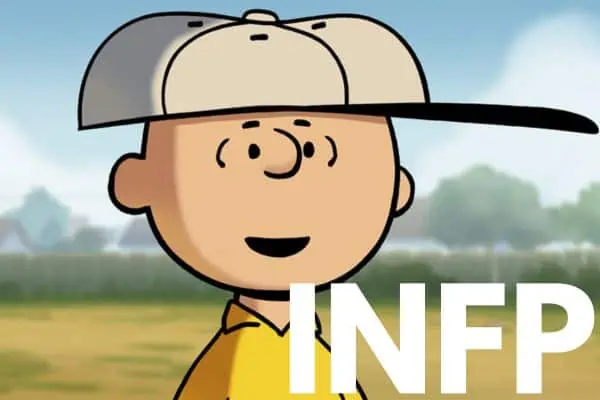
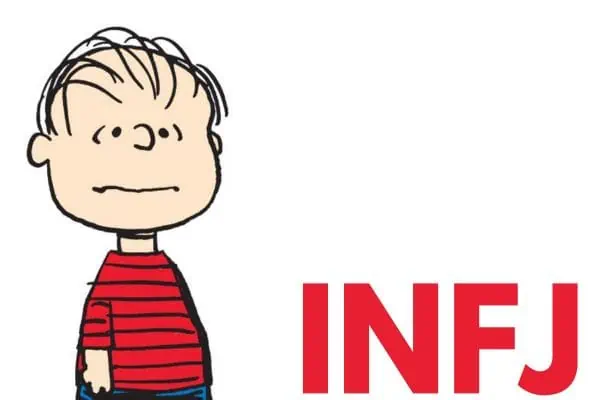
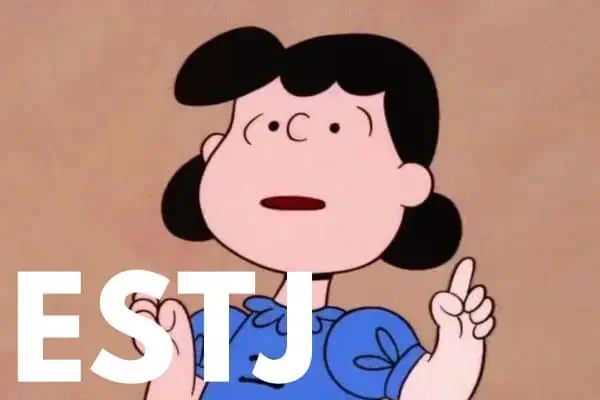
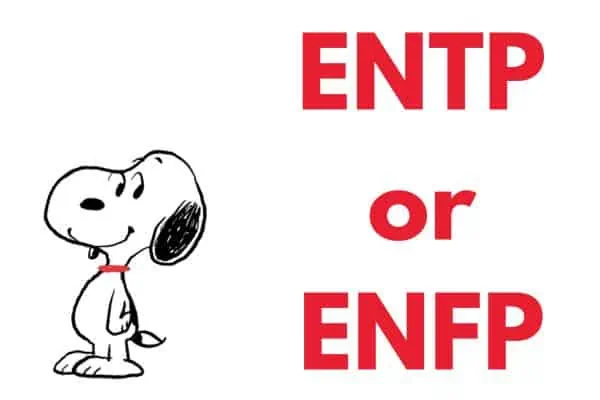
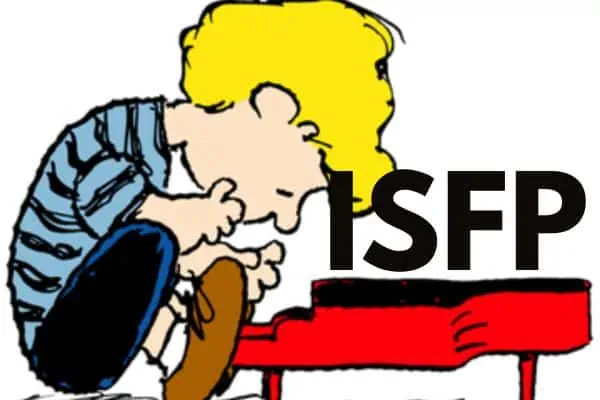
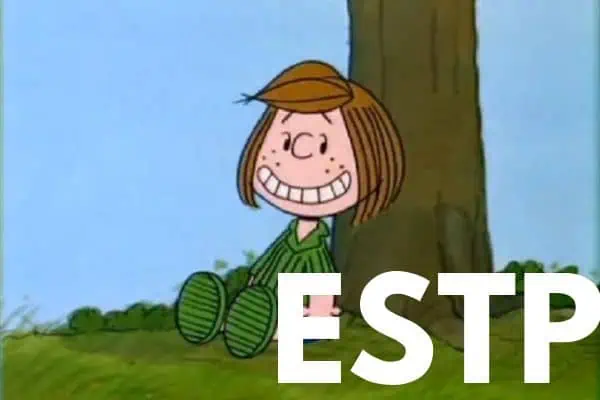
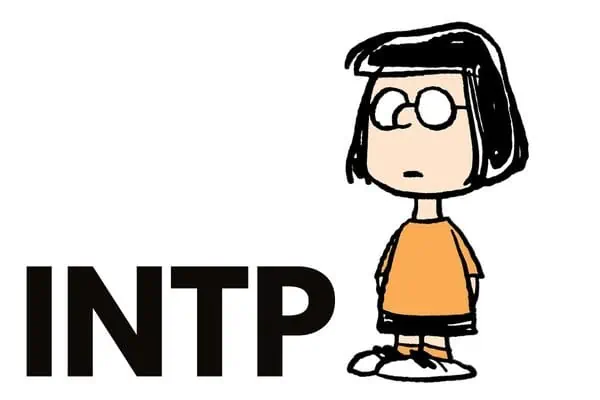
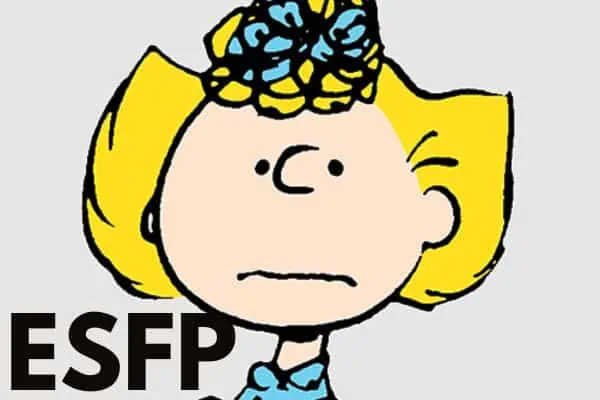
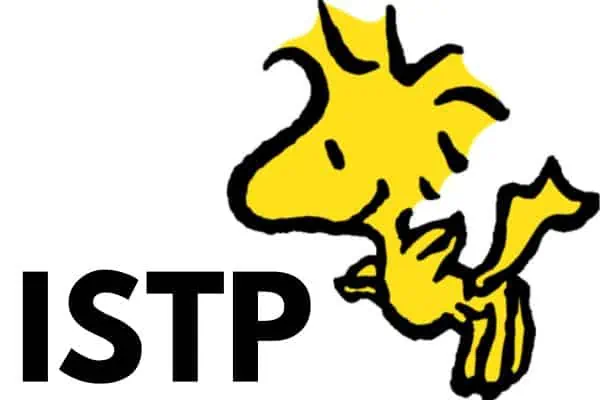
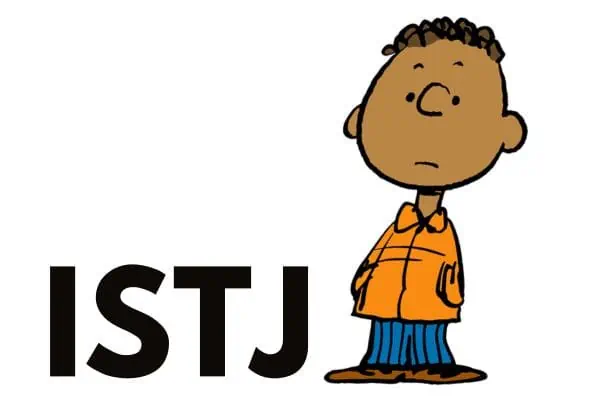
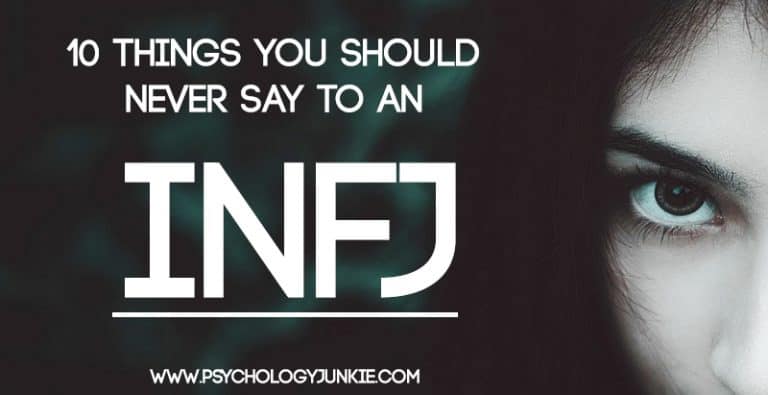





Hi Susan, thank you for your enlightening articles. I always enjoy them thoroughly!! I was a bit disappointed, though, when I read this article and found that there is no Peanuts character for the ISFJ personlaity type. However, please keep up the good work, your articles really make my day, most days 😉
Thank you Lizzy! Thank you so much for the comment! I wish each of the 16 personality types was represented, but unfortunately I couldn’t find someone that best fit ISFJ. I considered the little red-headed girl, but I really couldn’t find enough dialogues or thoughts with her; she’s more typically observed or described from an outside point of view (mainly Charlie Brown’s).
Linus seems more INTP to me, as I’m looking at more than his Christmas speech, but his interactions with others (and I’m more familiar with the comics from before the holiday specials were made). Like the time Lucy called him “stubborn“ and he argued back insisting on “tenacious”. Giving logical advice to Charlie Brown. Even the Christmas speech seems like something he just had studied on his own, and was now trying to give everyone else the “Truth”. (Ti=self-determined[i] truth[T]). The Great Pumpkin was more of an extraverted iNtuitive thing (and he “parented” others with it, to use Beebe’ s model), and kept giving it a chance; kept hoping for a change of fate, and I think introverted iNuition would have realized quickly it just wasn’t happening. (When he feared the Great Pumpkin passing him by due to his momentary lapse of faith, that seems more like Ni “Critic”)
With making Sally a P, it seems what you describe (not liking school, “responsibility”, etc.) is just from being a child. Her being by Linus’ side in the Pumpkin patch seems more Fe (which at that moment was “merging” with him, rather than the others, but then quickly switched to the others when it was clear his promise failed. It at that point wasn’t about joining the “fun” or “excitement”; the parties were over, then). Tertiary Ne is what also kept giving it a chance longer than made sense. FiSe would have more likely put the personal desire for the fun of the parties (which is whan would seem more “exciting”) over what this one person wanted to do.
ESFP and ESFJ will otherwise look very similar on the surface, from the three common letters, which also indicate the “Interaction Style” (“Get Things Going”), which is the classic “Sanguine” temperament, so both will have some of the same social traits.
I was surprised that you didnt have a person who epitomized the Defender type. My husband displayed so many of the Defender characteristics! He was like a bright star in the black night, but unfortunately that light went out last year. The world lost a great man when he died!
I am sorry about your husband dieing.
Enjoyed your lighthearted feedback of the peanuts gang Myers Briggs types. Like others have posted, I was unable to find ISFJ. Probably true to the ISFJ personality I scanned through all several times before I commented, as I always make sure before I challenge a situation.
Maybe I’m Pig Pen. His line in the Christmas pageant, “makes you want to treat me with more respect, doesn’t it” Always gives me a chuckle.